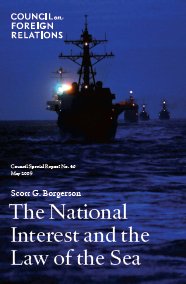
The declining health of the world’s oceans is a global concern. The UN Convention on the Law of the Sea (UNCLOS) is a set of rules for the use of the world's oceans, which cover 70 percent of the Earth's surface.
The Convention was concluded in 1982 to replace a group of treaties adopted in 1958 that were out of date and unfavorable to America's economy and security. UNCLOS came into force in 1994, and to date, 159 countries and the European Union have joined the treaty. As of yet, the United States has not.
The U.S. should be a strong international diplomatic and environmental leader when it comes to the world's oceans. The U.S. should ratify UNCLOS, as It is a critical step toward advancing our economic and security goals and ensuring greater protection of all marine resources by all countries.

